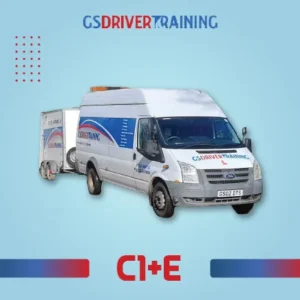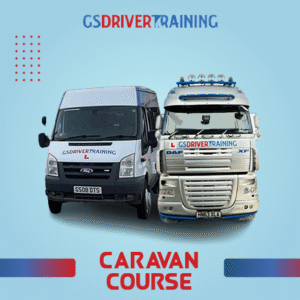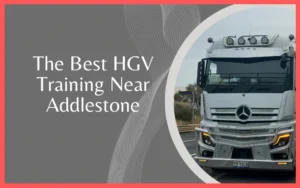Gain your HGV Licence with Expert Training in East Sussex
1. Determine Your HGV Licence Type
Decide which type of HGV licence you need based on the vehicles you want to drive. Common categories include Category C (Rigid) and Category C+E (Articulated).
2. Research Local Training Providers
Begin by researching local driving schools and training providers in East Sussex that offer HGV driver training. Look for those with experienced instructors and a good reputation.
3. Enrol in an HGV Training Course
Contact your chosen training provider and enrol in an HGV training course that aligns with your chosen licence category. Make sure the course includes both theory and practical training.
4. Theory Test Preparation
Prepare for the theory test, which assesses your knowledge of road safety, vehicle operation, and other essential topics. Utilise official DVSA resources and practice tests to ensure your success.
5. Practical Training
Attend practical training sessions provided by your training school. These sessions will teach you essential skills for operating HGVs, including vehicle handling, safety procedures, and on-road driving.
6. Mock Tests and Practice
Take advantage of mock tests and practice sessions offered by your training provider. These are crucial for assessing your readiness for the practical test.
7. Practical Test Booking
Schedule your practical test through the official DVSA website when you feel well-prepared. Ensure you arrive on test day with all the necessary documents.
8. Pass Your Test
If you successfully pass your practical test, you’ll have earned your HGV licence and can legally drive heavy goods vehicles.
9. Continue Learning and Specialise
After obtaining your HGV licence, consider further training or specialised certifications like ADR (Hazardous Goods) or HIAB (Lorry-Mounted Crane) to enhance your skill set.
10. Job Search and Career Advancement
Start your job search for HGV driver positions in East Sussex. With your new HGV licence, you can explore various opportunities in the transportation and logistics industry.
By following this guide and receiving expert training, you can successfully gain your HGV licence in East Sussex and embark on a rewarding career in professional driving. Good luck with your HGV training journey!
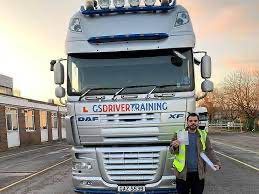
CPC Training in East Sussex
1. Determine Your HGV Licence Type
Decide which type of HGV licence you need based on the vehicles you want to drive. Common categories include Category C (Rigid) and Category C+E (Articulated).
2. Research Local Training Providers
Begin by researching local driving schools and training providers in East Sussex that offer HGV drivng training. Look for those with experienced instructors and a good reputation.
3.Enrol in an HGV Training Course
Contact your chosen training provider and enrol in an HGV training course that aligns with your chosen licence category. Make sure the course includes both theory and practical training.
4. Theory Test Preparation
Prepare for the theory test, which assesses your knowledge of road safety, vehicle operation, and other essential topics. Utilise official DVSA resources and practice tests to ensure your success.
5. Practical Training
Attend practical training sessions provided by your training school. These sessions will teach you essential skills for operating HGVs, including vehicle handling, safety procedures, and on-road driving.
6. Mock Tests and Practice
Take advantage of mock tests and practice sessions offered by your training provider. These are crucial for assessing your readiness for the practical test.
7. Practical Test Booking
Schedule your practical test through the official DVSA website when you feel well-prepared. Ensure you arrive on test day with all the necessary documents.
8. Pass Your Test
If you successfully pass your practical test, you’ll have earned your HGV licence and can legally drive heavy goods vehicles.
9. Continue Learning and Specialise
After obtaining your HGV licence, consider further training or specialised certifications like ADR (Hazardous Goods) or HIAB (Lorry-Mounted Crane) to enhance your skill set.
10. Job Search and Career Advancement
Start your job search for HGV driver positions in East Sussex. With your new HGV licence, you can explore various opportunities in the transportation and logistics industry.
By following this guide and receiving expert training, you can successfully gain your HGV licence in East Sussex and embark on a rewarding career in professional driving. Good luck with your HGV training journey!
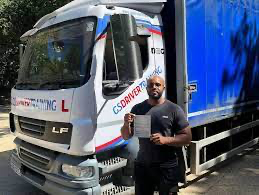
HGV Training in East Sussex
1. Determine Your HGV Licence Category
Decide which category of HGV licence you want to obtain. Common categories include Category C (Rigid) and Category C+E (Articulated). Your choice will depend on the type of vehicles you plan to drive.
2. Research Local Training Providers
Begin by researching local driving schools and training providers in East Sussex that offer HGV driving courses. Look for reputable providers with experienced instructors.
3. Theory Test Preparation
Prepare for the theory test, which assesses your knowledge of road safety, HGV operation, and other essential topics. Use official DVSA resources and practice tests to prepare effectively.
4. Practical Training
Attend the practical training sessions provided by your training school. These sessions will teach you essential skills for operating HGVs, including vehicle handling, safety procedures, and on-road driving.
5. Vehicle Familiarisation
Spend time getting familiar with the HGV you’ll be using during your training. Understanding the vehicle’s controls and features is crucial.
6. Mock Tests and Practice
Utilise mock tests and practice sessions offered by your training provider to assess your readiness for the practical test.
7. Practical Test Booking
Schedule your practical test through the official DVSA website when you feel well-prepared. On test day, arrive early and ensure you have all the necessary documents.
8. Pass the Test
If you pass the practical test, you’ll have earned your HGV licence and can legally drive heavy goods vehicles.
9. Continuing Education and Specialisation
Consider further training or specialised certifications such as ADR (Hazardous Goods) or HIAB (Lorry-Mounted Crane) to expand your skill set and job opportunities.
10. Job Search and Career Advancement
Start your job search for HGV driver positions in East Sussex. With your HGV licence, you can explore a wide range of job opportunities in the transportation and logistics industry.
By following this guide, you can successfully complete HGV training in East Sussex and gain the skills and qualifications necessary to embark on a successful career as an HGV driver. Good luck with your HGV training journey!
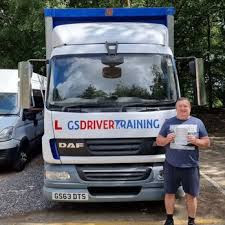
FAQ
1. What is HGV Training in East Sussex?
HGV training in East Sussex is a program designed to prepare individuals for a career as HGV drivers, allowing them to operate heavy goods vehicles on the road.
2. What Are the Different Categories of HGV Licences?
HGV licences are categorized based on the type of vehicle. Common categories include Category C (Rigid) and Category C+E (Articulated).
3. How Can I Enroll in HGV Training Courses in East Sussex?
To enroll in HGV training courses, contact a local training centre that offers HGV driver training. They will provide details on available courses.
4. What Are the Costs Associated with HGV Training in East Sussex?
HGV training costs can vary, so it’s advisable to contact training providers for specific pricing. Costs include both the training and test fees.
5. Can I Start HGV Training with a Provisional Licence?
Yes, you can start HGV training with a provisional driving licence. However, you’ll need to upgrade it to a full HGV licence to operate heavy goods vehicles professionally.
6. What Qualification Do I Need to Become an HGV Driver?
To become an HGV driver, you need the appropriate HGV licence, which can be obtained through training and passing the necessary tests.
7. What is the Driver CPC (Certificate of Professional Competence)?
The Driver CPC is a mandatory qualification for professional HGV drivers that enhances safety and professionalism. It includes both theory and practical training.
8. How Do I Enroll in Driver CPC Training?
You can enroll in Driver CPC training through a driver training centre. It’s essential for HGV drivers to maintain this qualification.
9. Can I Upgrade My Licence to Include Automatic HGV Training?
Yes, if you have a manual HGV licence, you can upgrade to include automatic HGV training. This allows you to operate automatic HGVs.
10. Where Can I Find the Nearest HGV Test Centre in East Sussex?
To find the nearest HGV test centre, you can contact the DVSA (Driver and Vehicle Standards Agency) or check their official website.
11. Are There Opportunities for Bus Driver Training in East Sussex?
Yes, training for bus drivers is available in East Sussex. Local training providers can offer courses for individuals interested in becoming bus drivers.
12. What is the Role of HGV Drivers in the Transportation Industry?
HGV drivers play a crucial role in transporting goods across the country. They are responsible for the safe and timely delivery of heavy goods.
13. What is LGV Driver Training?
LGV driver training is a program designed to prepare individuals to become professional drivers of Large Goods Vehicles (LGVs), commonly used for transporting goods.
14. Where Can I Find an HGV Training Centre in East Sussex?
You can find HGV training centres in East Sussex by searching online or contacting local driving schools that offer HGV training courses.
15. What Are the Licence Training Costs for HGV and LGV Training?
Licence training costs for HGV and LGV training can vary, so it’s advisable to contact training providers for specific pricing information.
16. Is HGV Training Available in Eastbourne?
Yes, HGV training is available in Eastbourne. You can find training providers in the area that offer courses to help you obtain an HGV licence.
17. How Much Does HGV Training Cost, and What Does It Include?
HGV training costs vary, and they typically cover both theory and practical training, as well as the test fees required to obtain an HGV licence.
18. What Types of Heavy Goods Vehicles (HGVs) are Commonly Used?
Common types of heavy goods vehicles (HGVs) include articulated lorries, rigid lorries, and other large vehicles used for transporting goods over long distances.
19. What Courses are Offered as Part of HGV and LGV Driver Training?
HGV and LGV driver training typically includes both theory and practical courses, covering topics such as vehicle operation, road safety, and professional driving skills.
20. How Do I Find HGV Training in East Sussex?
To find HGV training in East Sussex, you can search online, contact local training centres, or get recommendations from others who have undergone training.



